DUI and DWI charges are very serious and can lead to convictions that have lasting consequences. A DUI conviction impacts your license, car insurance, criminal record, driving record, employment, college career, relationships, and more. Unfortunately, many people do not have reliable access to a DUI meaning and what happens during and after a DUI arrest. This can lead to people facing these situations feeling extremely unprepared.
In an effort to help those who find themselves battling DWI or DUI charges, or for those trying to educate themselves and others about the DUI meaning, we have compiled a thorough guide containing the relevant information you should know about the process of being arrested and then charged with a DUI. Learn about auto laws that may affect you, what the difference between a DWI vs DUI is, what to do if you’re facing a DUI arrest with a charge and conviction, how to manage your case to keep your license, and what you can do in the years after the conviction to reduce the impact it has on your life.
Whether you are just now going through this process, or you are hoping to help to educate others in your life, our ultimate DUI arrest guide takes you through what to know before this ever happens, what to know if this happens, and how to recover and regain your life in the aftermath.
Part 1: What Drinking and Driving Means Under the Law
Knowing the DUI Meaning
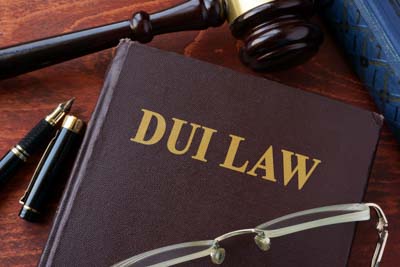
A DUI arrest can be made on someone who was found to be driving or having the intent to drive a vehicle with a blood alcohol concentration (BAC) of .08 or higher. This is considered “under the influence” according to US law. DUI arrests can also be made by an officer if gross impairment due to intoxication was determined before or without a confirming BAC level on the side of the road. In many states a driver can refuse a roadside preliminary breath test, but this does not delay an arrest and can carry harsh penalties.
What is a DWI
A DUI is a more serious offense than a DWI, although both still carry heavy consequences, fines, and the possibility for jail time. DWI stands for Driving While Intoxicated, and is the offense charged with when the BAC of the driver is found to be between .07 and .08 for persons driving age 21 and older. A DWI arrest may occur if a driver blows just below the legal limit but exhibits behavior under a police officer’s detection or field sobriety test that showcases a dangerous amount of impairment.
DWI vs DUI: Fines, Jail Time, and the Effects on Your License
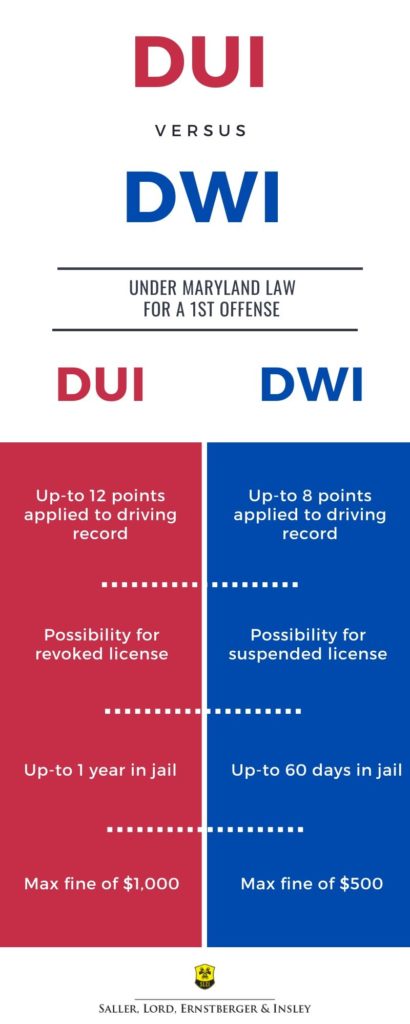
For Maryland license holders, a first-time offense DUI is considered a misdemeanor if there were no fatalities and may result in 12 points being applied to your license. A DWI charge may result in 8 points.
Twelve points in Maryland can result in a revoked license for up to 6 months for first-time offenders, and secondary DUI arrests can result in a revoked license for a year’s time.
Eight points can result in a suspended license for 6-months for DWI charges, and secondary DWI charges may result in a suspended license for 9 to 12 months. Third and subsequent DWI charges carry heavier consequences.
A DUI charge can result in up to a year in jail for a first offense, while a first offense DWI carries a max penalty of 60 days in jail. Two years is the max time for a subsequent DUI charge, with a mandatory 5 days being served. A secondary DWI charge can result in up to a year’s jail time.
A DUI charge may result in a fine up to $1,000 for a first offense, and a DWI can result in a max fine of up to $500 for first or secondary offenses. Subsequent offenses for a DUI arrest can be up to a $2,000 fine.
If there are two DUI convictions within five years’ time, there is a mandatory period of suspension that will be followed by a required ignition interlock system.
In any DWI or DUI arrest, there is a possibility to be required to undertake DUI education classes.
In either a DWI or DUI arrest, you may be eligible for participation in the ignition interlock program instead of a suspended or revoked license in order to maintain your driving privileges.
All DWI and DUI charges may be more severe if minors were in the vehicle during the time of the offense. Fines are likely to be doubled as is the possible jail time.
Under 21 and Driving Under the Influence of Drugs or Alcohol: What It Means for You
A first time offender under age 21 who receives a DWI charge may receive up to a $500 fine, up to 8 points on their driving record, and a 1-year license suspension. A secondary offense may result in the same fine and points with a 2-year license suspension.
All persons under age 21 who violate their alcohol restriction must participate in the ignition interlock program or have their license suspended.
If someone under 21 is found with possession of a fake ID, they may face a fine up to $500 and 60 days in prison. Twelve points may be assigned to the driving record and the license may be suspended or revoked. For persons under 18 who are charged with a DUI or DWI, a Juvenile Defense Lawyer may be needed depending on the situation, additional aggravated charges, and more. If your child is a minor and facing these charges, always contact a local juvenile defense lawyer to see how they can assist you and your child with the case.
Sleeping It Off in Your Car? That’s a DUI
Drinking and Driving arrests are not solely related to operating a vehicle, but can also include intent to operate a vehicle while intoxicated or if you are under the suspicion of having operated a vehicle while impaired by drugs or alcohol.
Being arrested for a DUI or DWI while sleeping in your car comes down to a few details that may showcase your intent to drive or having recently driven while drunk or under the influence:
- Keys In the Ignition: If you were asleep in your vehicle but the keys were in the ignition, this proves intent to drive. Even if you were asleep in the passenger or back seats, the keys in the ignition is considered being “in control” of the vehicle, and therefore is a DUI offense and can lead to a convicted DWI or DUI charge. Although you may argue you had turned the car on to provide heat in the winter or AC in the summer while sleeping off the intoxication, you will need to hire an experienced DUI attorney to work with you on this defense as a police officer can still complete a DUI arrest and have a charge filed.
- Where You are Seated in the Vehicle: If the keys are not in the ignition but you are in the driver’s seat, this also proves intent to drive or being in control of the vehicle. If you turned on the car, felt you were too drunk to drive, removed the keys from the ignition with the engine off but fell asleep in the driver’s seat, the police can make a DUI arrest.
- Where is Your Vehicle Parked: Where your car is parked when the police find you is also considered during a DUI arrest. If your vehicle was parked in a driveway or a parking lot it may indicate you felt you were unable to drive home. However, if your car was parked on the side of a roadway, the police may believe you were driving while intoxicated, stopped, and took a nap. Even parked and asleep in a parking lot or driveway, the police can argue you had driven to that location, instead of sleeping before driving.
Even with the engine off, keys removed from the ignition, and sleeping in the backseat in a secure location like a driveway or a parking lot, a DUI arrest can still be made if the police suspect that you drove to your location while intoxicated. This is why it is important to understand the DUI meaning in your state to know when you may or may not be in violation of DUI law.
You may still face a suspended or revoked license under these circumstances with points being added to your driving record if you do not work to remove the charge before it becomes a DWI or DUI conviction. It is always safest to hire a DUI attorney to assist you with any DUI charges.
Part 2: The Need-to-Knows During a DUI Arrest, Traffic Stop, or Accident
What Happens if You Are Suspected of Being Intoxicated During a Traffic Stop
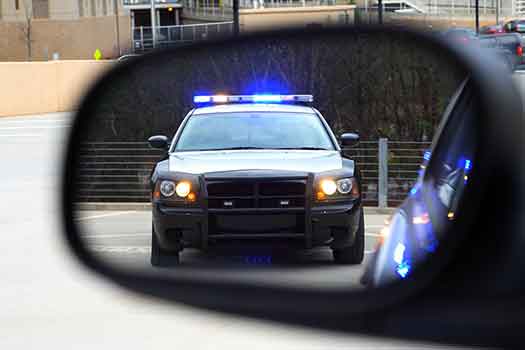
The officer will have already gone through two levels of a detection process before requesting a field sobriety test. Their detection process will be called upon for review in the case of a hearing. The detection process begins when they suspect a driver of drinking and driving, and it concludes when they have made an arrest or released the driver.
Understanding the detection process officers are supposed to follow in the case of a suspected drinking and driving situation can help you in understanding what they will be looking for and what actions you may have committed to lead them to suspecting intoxication and impairment. Keep in mind that the detection process is merely a set of proposed steps to follow and an officer can use their best judgement in determining an intoxication level and jump directly to requesting a field sobriety test or preliminary breath test, i.e. in the case of an accident or gross impairment.
Officers observe drivers for swerving, weaving, sporadic braking, and other forms of erratic driving under their first level of detection: the habits of the driver. If you were pulled over during an unrelated traffic stop (for example, speeding) the officer may notice other indications of driving while intoxicated, which is their second phase of detection: face-to-face. These include heavy odors indicating drugs or alcohol or the attempt to cover the scent of drugs or alcohol, paraphernalia or alcoholic beverages, soiled clothing indicating intoxicated behavior, slurred speech, bloodshot eyes, aggressive language, inconsistent responses, and other signs indicating intoxication. Police officers may attempt to divide the attention of the driver during face-to-face detection by asking simultaneous questions to determine their level of impairment. The officer will complete both levels of detection (driving observation and face to face observation) before they conclude whether requesting a field sobriety test is necessary, which is their third level of detection.
What Happens During a Standardized Field Sobriety Test
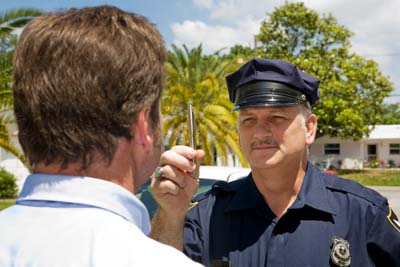
A field sobriety test can be refused in the state of Maryland. Some lawyers recommend against participating in the field sobriety test, as it can be misleading and is almost entirely subjective. If you partake in a field sobriety test, factors like the weather, time of day, clothing worn (heels or baggy pants, for example), health or physical injuries, and more can all be used during a hearing to reduce DUI charges or throw out the test results.
Parts of the field sobriety test include evaluating pupil dilation, eye or visual tracking, and involuntary eye movements known as nystagmus. As part of the field sobriety test, you may also be asked and evaluated on your ability to walk and turn heel to toe with a focus on balance, if you waited to begin until instructed, if you stopped walking, if you miss your heel to toe connection, if you step off the line, if you need your arms to balance, or if you are unable to complete the test. A one leg stand is also part of the test, where the police officer will observe you for signs of swaying, using your arms to balance, hopping, or continually putting your second foot down. The police officer may also choose to use other field sobriety tests if they believe the first ones were indeterminate in completing the detection process.
Field sobriety tests are voluntary in Maryland and may be refused. An officer can still choose to arrest a driver, even if they refuse the field sobriety tests, based on other judgements to determine impairment due to alcohol or drugs.
What is a Preliminary Breath Test and Should You Refuse
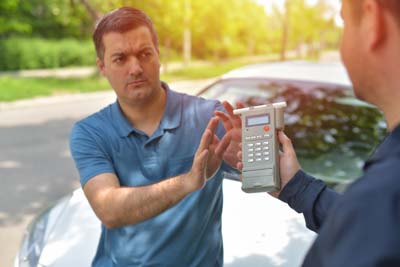
BAC levels and their common accompanied actions as summarized by the NHTSA include:
.03 – slowed reactions
.05 – impaired judgement
.08 – impaired vision
.10 – poor coordination
In Maryland, you may refuse a preliminary breath test but there are penalties with refusing. The only time you may not refuse a BAC test is a chemical test at a police station when you were involved in an accident that resulted in a death or severe injuries.
The penalty for refusing a preliminary breath test includes an automatic license suspension, license confiscation, and a 45-day temporary license being issued. The suspension of the license begins on the 46th day and your license suspension will last longer than a standard suspension where you submitted to a preliminary breath test.
After refusing a breath test and receiving a temporary license, Maryland drivers may request an administrative hearing within 30 days of the order of suspension to showcase why their license should not be suspended. In order to ensure the hearing occurs before the license is suspended at the 46 day mark, a hearing must be requested within 10 days of the day of the suspension order. Failing to show up to the hearing results in a suspension.
Refusing a breath test can result in a 270 day license suspension on a first offense, as opposed to a 180 day suspension. A second or additional offense that is also accompanied by refusing a Maryland breath test that results in a DUI charge is a two year suspension.
Many lawyers argue that drivers should refuse a preliminary breath test, as it is often only used to help in a conviction. However, if you do partake in a preliminary breath test, there are factors that lawyers can use to aid in your defense, like the use of an inhaler, metal in the mouth, and other factors.
Your Right to Record Your Traffic Stop… In Certain States
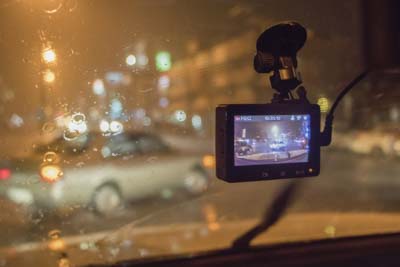
Photography and visual recordings are allowed by law in public places and on your own private property, except where privacy is expected (bathrooms, for example). Your car is considered your private property and you are allowed to conduct video or photo recordings. Police activity in public places is also eligible to be visually recorded, and this includes a traffic stop.
Audio recordings, however, in the state of Maryland and eleven other states require consent to be obtained from every person for the audio to be recorded.
If you choose to record the traffic stop, or if your dash cam records audio, you must inform the police of the dash cam’s audio recordings and that you are choosing to record what is happening with your cell phone, go pro, camera, etc. or else the recording could violate the law of the officers’ rights to privacy, dismissing the recording during a hearing.
In any situation, even without audio, it is best to respectfully inform the police officers you are recording the traffic stop so as not to infringe on their right to privacy. Do not focus on your phone or fiddle with it excessively if you choose to record your traffic stop or the officer(s) may request you put it away to focus on the matter at hand as it interferes with you or the officer’s safety or their ability to enforce the law.
The police have the right to stop a recording of any kind if it makes it harder for them to do their job or infringes on their safety or the safety of others. An example of this would be if a passenger recorded the traffic stop, which encouraged the driver to act more aggressively than normal.
Recordings of the traffic stop may assist if you are charged with a DUI arrest by showcasing improper field sobriety test instructions, improper proceedings, and more. However, the recording may also showcase your own intoxication or impairment, and if you choose to record the traffic stop you should do so respectfully and without interfering with the proceedings.
When Drinking and Driving Results in an Auto Accident
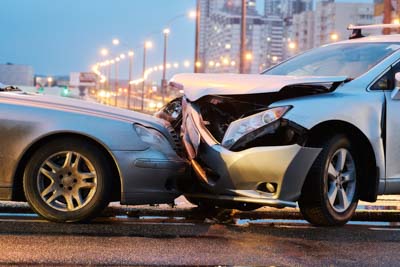
If no one was severely injured or died as a cause of the accident, the DUI arrest and charge proceedings normally proceed as they would under a normal DUI arrest and you may only face a misdemeanor. However, you may also face additional aggravated DUI charges, which include reckless driving, endangerment, or other crimes.
In the case that the accident caused severe injuries or the death of another person, or mass property damage, you may face being held in jail without an option for bail. Criminal negligence charges may be pressed, or vehicular manslaughter. You should ensure you hire an attorney who is not only experienced with DUI law but violent crimes law, which a vehicular homicide or manslaughter is considered, to prepare the best defense of your case should such an accident occur.
Outside of charges being pressed by your state, the injured parties may additionally sue you for financial coverage or emotional damages. You should ensure you have a DUI lawyer who can help you handle both the charges from the state and any civil lawsuits you receive to assist you during the legal process.
After the accident, while still on scene, remain calm. Although you may feel the urge to flee due to being intoxicated and feeling irrational, you must stay on scene and call 911 for help in the case of injuries. If you flee an auto accident, you face increased charges, jail time, and fines.
Cooperate with all people while on the scene. Give your name, insurance information, and more to the other drivers when they request it. Cooperate with the police and any witnesses but do not admit fault. You still have the right to refuse a field sobriety test but you must take a chemical breath test.
After you are released from the drunk tank or on bail, you should immediately call your lawyer and insurance company to stay on top of the incoming charges, paperwork, and forming defense for both a MVA hearing and when facing the criminal charges.
In Maryland, causing severe or life-threatening injuries in a car accident due to drinking and driving can lead to additional misdemeanor charges (or increase the initial charge to a felony) and increased fines and jail time. You may also receive an aggravated DUI charge instead of a standard DUI charge, which is when additional crimes were observed by the arresting officers.
If there were serious injuries as a cause of the DUI accident you may face a two year prison term and fines up to $3,000. If a fatality occurred as a result of the drunk driving accident, you may face up to 5 years in prison and up to $5,000 in fines. Civil lawsuits also normally follow from the victim’s families, resulting in more financial responsibility and possible additional charges.
Part 3: The Days Following Your DUI Arrest
Hiring a DUI Attorney is Your First Priority

You want to contact a lawyer as soon as possible to help you with your responses, hearing, defense, and more. Because you should respond to request a hearing within 10 days of the arrest, talking to a lawyer is vital to help you explore your options, including opting into the ignition interlock program to avoid a suspended license.
Many DUI attorneys offer free consultations, and you will want to discuss your case with a few lawyers. Although it is important to hire a lawyer as soon as possible to help you with your case, you also want to ensure you get a lawyer you are comfortable working with, one who understands your case thoroughly, and one who is direct with you about your situation. A lawyer should focus on the facts, help you understand your realistic outcome, outline the situation for you, and assist in understanding what comes next. A good lawyer should also help alleviate the stress and provide you with a clear path of what to do next.
After meeting with several lawyers and hiring one to assist with your case, there are two main stages where you will fight to keep your license and/or reduce the charges you are convicted on.
The first will be your MVA hearing. If you respond within the 10 days following the arrest, you will have a hearing with the MVA to determine if you are able to keep your license or if it will be suspended. If you do not arrange this hearing with the MVA, your license will be automatically suspended.
The second stage is your criminal case, where you face the charges and final convictions of the initial DUI arrest. At the end of the court proceedings, you will have the final fines, license suspensions, class requirements, points assigned to your driving record, jail time, and more from the DUI arrest. However, you may face civil lawsuits if your drinking and driving resulted in an accident with injuries, fatalities, or property damages.
What Happens at the DUI Arrest Hearings for Drinking and Driving
During your first hearing, the MVA hearing, a determination will be made about the state of your license.
At your hearing in the state of Maryland, the MVA will consider:
- If the police officer had reasonable cause to believe you were driving or intending to drive under intoxication
- If there was evidence of drinking or drug use
- If you were informed of the penalties of refusing a BAC test or failing one
- If you refused the preliminary breath test test
- Whether you were driving or attempting to drive with a BAC of .08 or higher at the time of the test
- Whether you were in an accident while intoxicated that result in a death
This hearing is to determine the suspension of your license, and if the MVA Judge believes you were properly pulled over, warned, and failed the preliminary breath test or refused it, your license will be suspended. This MVA hearing is not the court proceeding that determines if you were guilty of the DUI charges. Having a firm understanding of the DUI meaning and the DWI vs DUI differences may assist you in your MVA hearing.
Once you have received a DUI arrest, the district attorney of the county will determine whether to issue DUI charges or not, as well as any aggravated DUI charges, and then you may or may not face the conviction of a DUI or a lesser charge if you work with an attorney during the court process. This second criminal case determines points, jail time, fines, and what goes on your criminal record. In both circumstances it is vital to consult with a DUI attorney in order to protect your driving privileges, avoid jail time, and lessen the charges you are facing.
Having DUI Charges Thrown Out or Reduced to a Lesser Conviction

Some methods a lawyer may use to help reduce your DUI charges or have them thrown entirely include looking at the process of detection the officer used and if they had probable cause for the traffic stop and initiation of the field sobriety test. Your lawyer may then determine if the field sobriety test was instructed properly or hindered in any way by outside factors like clothing, health issues, or the environment. Your lawyer may also consider if the breath test was requested after the field test, the results of the BAC test, the timing of the breath test, and more.
Field sobriety tests can give off the impression of “impairment” that your lawyer will take into consideration when building a defense, including if weather conditions were icy, it was late at night and the driver felt fatigue, the test was administered on a narrow or steep road, clothing was not ideal including heels or baggy clothing, there are medical or health conditions such as knee pain, hip problems, AD/HD, and others. Your lawyer will work with you on these factors to help build your defense if you participated in a field sobriety test.
If you submitted a preliminary breath test, your lawyer may argue about imposing elements that affected the results, such as metal in the mouth or acid reflux, the timing of when the breath test was administered, and other elements.
If you are facing a DUI charge due to being asleep in your vehicle while intoxicated, your lawyer may argue the location of the vehicle, the time of day, your location within the vehicle, the location of the keys, the weather, and other factors.
Based on the details of your case, any accidents that occurred, your driving history, and more your lawyer can assist you in reducing the DUI charge so you do not have a permanent DUI charge on your record throughout your lifetime.
DUI Classes and Their Impact on Your Hearing
DUI education courses may be required of you after your court proceedings, or suggested as an indication of good will by your lawyer to enroll in before your court case.
DUI classes discuss problems with drinking, the experience of drinking and driving, analyzing social drinking habits vs. having drinking problems, and more. These classes can be intimate and intense. They can also help with a drinking problem and create a positive look during a hearing to show intent to change and improve and never repeat the mistake.
Different DUI Classes, especially in Maryland, vary according to length, cost, and intensity. Online DUI education classes do not carry the same weight in the eyes of a judge as in-person DUI education classes, although many are available. Traffic school is not the same as DUI courses and will not cover the same material. Your lawyer may be able to help you find the right class suited for your availability and financial situation.
DUI Courses in MD will not be required before court, but completing or starting a course can show initiative, intent, and good will to the judge and possibly help improve your final conviction.
First offenders may be requested to take a 12 hour DUI education course, whereas subsequent offenders may be ordered to take a 26 hour course.
No matter the situation you are in, discuss the impact of DUI education classes with our lawyer and how they may assist you. DUI education courses are also a beneficial reference to provide to employers or colleges in the years following your conviction if you have to disclose your DUI arrest and experience.
Understanding the Ignition Interlock Program and How it Affects Your Driving

Opting into the ignition interlock system is an option if you are a driver who was arrested for a DUI and refused or failed the BAC test or you are a driver convicted of a DUI and are facing an administrative license suspension — this is the suspension determined in your initial MVA hearing. Opting into the program will allow you to keep your license as an ignition interlock license, as opposed to a full license suspension where you are not legally allowed to drive. Participation in this program varies so always consult with a lawyer following your arrest to determine your eligibility and the restrictions of the program.
The ignition interlock program requires you to have an ignition interlock system installed on your vehicle for the mandatory time as set forth by your hearings and court proceedings. This can vary from a minimum of 180 days, 270 days if you had refused the BAC test, or up to a year or more depending on your driving record, conviction, and other factors.
The ignition interlock device requires you to breathe into a breathalyzer before turning on the vehicle. The breathalyzer analyzes your BAC to determine sobriety. The ignition interlock device will also issue “rolling tests” that will require you to breath into the system while driving during longer road trips — this is in order to prevent “tricking” the device by drinking after you have started the car. In Maryland, as of Fall 2019, all ignition interlock systems are installed with a camera that captures a still photograph of the person completing the breathalyzer. This camera does not record video or audio and does not take still photographs during any other time.
The MVA does not provide or pay for the ignition interlock device, collaborations, installations, or any other fees associated with the program. The cost of the device and all upkeep is the sole responsibility of the driver, although there are some assistance programs available if the driver is unable to afford the device. The initial costs for installation can range between $100 – $200. Your lawyer should be able to assist you with finding an ignition interlock provider in your area.
Drivers eligible for the ignition interlock program and therefore able to keep their driving privileges are drivers who:
- Have a license that is not currently suspended, revoked, cancelled, or refused
- Are within the 30 days of the suspension order without a currently suspended license after a DUI arrest
By participating in the ignition interlock program, you surrender your standard license and receive an ignition interlock program license instead. You must complete the breathalyzer before operating the vehicle, during all rolling tests, and must have sober readings. The set time of having the ignition interlock device on your vehicle may be extended if three violations are found and you may be removed entirely from the program after four violations and forced to take the entire license suspension time. You may attempt to re-enroll in the ignition interlock program 30 days after being removed from the program in some instances.
Every 30 days while enrolled in the ignition interlock program you must take your vehicle to the provider where they will collaborate the device and download the data. Any violations in the data will be sent to the MVA. The collaboration can cost an additional $60 – $100 a month depending on the provider.
The information recorded includes:
- How many engine starts and stops of the vehicle (your car must be started and driven a set number of days a month)
- The distance length traveled
- Any alcohol detected during start-up or rolling tests
- Failures to take rolling tests
- Start-ups without using the breathalyzer
- Attempts to disconnect or skip the test in any way
- The identity of the person in the camera capture completing the breathalyzer
Another person should never attempt to start the vehicle for you. If another person must drive your car, consult with your lawyer or reach out to the MVA before the occurrence to discuss the situation and avoid incurring a violation. Although you may always reach out to the MVA after another driver starts your car, this may count as a violation and go against your enrollment in the program.
Violations of the program include:
- Not having the device installed and not obtaining the program license in the set amount of time provided
- Not appearing for the monthly monitoring check visits
- Operating another vehicle during time in the program that does not have an ignition interlock device installed
- Not paying for all costs associated with the device and its collaboration and monitoring
- Tampering or attempting to bypass the device
- Attempting to start or operate the vehicle with a BAC level of .025 or more
The interlock system can be removed only after successful completion of the program as set forth and confirmed by a letter from the MVA. Violations may result in an extension of enrollment in the program, sometimes complete removal with a suspension or revocation of the license. If you expect any violations may occur you should always contact the MVA before the violation — i.e., if another person must drive your car.
Although some items, like mouthwash or some asthma inhalers, may include small amounts of alcohol that can trigger the breathalyzer report, you should adhere to the guidelines set forth and attempt to restrict use of these items as much as possible. As for medical conditions, consult with the MVA and your lawyer.
In some circumstances, enrolling in the ignition interlock system before receiving your conviction can count towards the time required for you to use the interlock device as set forth after the conviction. Discuss these details with your lawyer and the expected outcome of your case. The ignition interlock program may be the most viable option for those who require the use of their vehicle for their job or school.
How Being Charged with Drinking and Driving Can Affect Other Court Cases
If you are undergoing other legal court cases and are arrested with a DWI or DUI charge during that time, a DUI arrest may impact the outcome of your other court cases.
DUI arrests most often affect those who are on probation, those undergoing a divorce, and those involved in a child custody case.
A DUI arrest reflects poor judgment and negligence, and the impending fine and possible jail time will be considered when making divorce decisions or awarding custody of a child. In probation cases, the DUI arrest in itself, even before the hearing of official charges being filed, can reflect that the driver was not exhibiting “good behavior” and may, therefore, be in violation of their probation.
Even if your other court cases are not any of the above, a DUI arrest increases anxiety, depression, stress, financial pressure, and more, all of which can affect any court proceedings you may be involved with. Always keep your lawyer up to date on any court cases you are battling so they can best assist you.
Part 4: The Years Following Your DUI Conviction
How Long Does a DUI Conviction Stay On Your Record
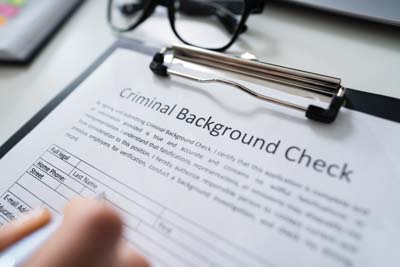
You may be eligible for an expungement of the DUI conviction off your record if the charge was dismissed, you were found not guilty of the DUI charge, or the courts did not proceed with the criminal charges.
If you have met and discussed your case with your lawyer and believe you are eligible for an expungement, there are fees and an application process that must be conducted. Fees for the expungement proceedings cost as low as $100 but can be as much as $400. These fees can also apply to expungement requests for points on your license through the administrative process with the MVA and are your responsibility to pay.
In most cases, however, if you were found guilty of a DUI charge and convicted, you should expect the DUI to be reflected on your criminal record for your lifetime. These will appear in detailed background checks and should be prepared for as such.
How Do You Get Your License Back After a DUI Suspension or Revocation
If your license was suspended or you receive a revocation after a DUI charge, you may be wondering if and how you can get your license back.
A suspended driver’s license means your license is temporarily not eligible or valid. You may have received one due to eight or more points on your driving record, a DUI charge, found at fault in a fatal accident, refusing the alcohol breath test, and more. A suspension will go into place if you did not opt into the ignition interlock system or you refused the breath field test. This is why it is extremely important to respond to these charges with a MVA hearing within 10 days of the traffic stop.
You cannot drive with a suspended license. You will need to turn your license into the MVA by the date requested. A suspension will end once the set time has come to an end and you have submitted all necessary fees for the suspension termination process. You can complete this process in person or over the phone with the MVA. There will be an application to complete and a fee to submit, once you have received the approval you can retrieve your license from the MVA.
A suspension differs from a full revocation, in which case your license is fully taken on a permanent basis. You will have to reapply to receive your license and you may receive a refusal depending on the reason for the revoked license, i.e. a fatality due to driving under the influence. If the revocation was due to 12 or more points or a DUI, you may receive a specific period of time after which you can re-apply for your license.
If you have only received one revocation, your waiting period is 6 months before you can re-apply for your license. Two revocations is a year, three revocations is 18 months, and four or more results in a two year minimum waiting period. The waiting period begins the day you turn in your license or the date of the revocation, whichever date is later. You will follow a similar process to reinstating a suspended license, but may be asked to retake all driver’s tests before receiving your license.
The Impact a DUI Arrest Has on Your Car Insurance

Some auto insurance companies, however, may argue you had an intent to cause the accident, allowing them the right to refuse to cover it. Your auto insurance company may argue that because you intentionally made the decision to drink and drive, you also intended for a car accident to occur. Contacting a lawyer immediately after an auto accident is the best way to handle potential fines, charges, and jail time, but also to prepare for any issues you may have with your auto insurance company concerning your claim.
If your auto insurance company does provide the coverage it only extends as far as your policy outlines it and does not cover subsequent charges, fines, lawsuits, and so forth. Your DUI will almost certainly result in a high number of points, causing your auto insurance policy rates to raise after your MVA hearing, or you risk your insurance company dropping you all together after the points are added. You will be considered a “high risk driver” and may be required to purchase an additional type of coverage. In Maryland you do not need to complete a SR-22 form to obtain a certain type of insurance after being convicted of a DUI charge.
Points in Maryland stay on your driving record for three years and may not be removed unless you pursue an expungement. A DUI will stay on your record forever, and although your rates will not remain high for the rest of your lifetime, you may still be considered “high-risk” after the initial three years have passed and your points have been removed.
It is recommended to continue to compare auto insurance rates every year after a DUI conviction to see if you can receive a lower rate with another company. While the insurance rates you are facing may be extremely high, driving without insurance, especially after a DUI conviction, can lead to worse consequences and a prolonged chance of reducing your insurance rates if you do not have your license suspended or revoked altogether.
If you were involved in an accident due to driving while intoxicated, depending on the severity of the auto accident, your auto insurance company may cover the accident and then automatically drop you after the accident’s paperwork and coverage has been completed, or refuse your renewal at the end of your coverage.
If your license was suspended or revoked as part of your DUI charge, you may still be responsible for insuring your vehicle. While it is possible to insure a vehicle without a driver’s license, it is much more difficult and you are less likely to find a willing car insurance carrier. You may be considered an “excluded driver” if you are the only one who is able to insure your vehicle, and your rates may vary. Someone else in your household may be eligible to insure your vehicle instead, listing you as an “excluded driver” of the household due to your inability to legally drive. An excluded driver on a car insurance policy is not covered as a driver of the vehicle and if is found to be driving and causes an accident, there will be no coverage applied. Talk to your lawyer or your insurance company about the best possible way to insure your vehicle after losing your license to a DUI.
Telling Employers or Universities About Your Criminal DUI Conviction

You may be at risk of losing your current job if you are convicted of a DUI charge depending on the nature of your job. Even if you do not have to drive as part of your job, a DUI is considered a crime and can be grounds for a dismissal. You should disclose your DUI charge to your employer only if it is part of your employer’s contract to disclose convictions, you drive as part of your job, or you are asked directly by your employer. A lawyer will be able to assist you when and how to notify your current employer if you must do so. If you are not legally responsible to notify your employer, then you should keep your private life separate from your business position and have no obligation to notify them of the arrest. Refrain from sharing the DUI arrest with coworkers, and do not disclose why you need to miss work for the court hearings and other issues when requesting time off.
If you are searching for a new job and have a DUI charge on your record, you may be wondering if and when you need to tell potential new employers. Your responses on your application will depend on the DUI conviction you received. Read all questions carefully pertaining to arrests, charges, convictions, misdemeanors, and felonies. All of these categories occur at different stages and some may not apply to you depending on if you were arrested but not convicted, or convicted of a misdemeanor crime but not a felony. State-issued jobs, public office applications, law-enforcement positions and all school-related jobs will require a full disclosure, however, no matter if you only received a DUI arrest but not a conviction. These disclosures may also depend on if you had your criminal record expunged.
Do not lie on your applications, even if you are tempted to do so and think it will not matter, as a background check will reveal a DUI charge. You may be terminated from a job where you lied on your application and the background check revealed the DUI at a later date even after you were hired.
Once you have disclosed your DUI as requested on the application it does not mean you are automatically removed from the hiring process. While it is legal to not hire someone based solely on their DUI charge (it is considered a criminal history) the type of company and industry will ultimately determine your eligibility. When discussing your DUI with potential employers, wait for them to bring it up. Discuss the DUI as a part of your past, even if it occurred recently. Without going on at length, briefly mention lessons learned, classes taken to improve your driving and decision making, and any volunteer programs or steps you completed to make amends and change your behavior.
Although a DUI conviction can impact your employment status or career trajectory, it does not mean you have no options. Be honest when asked, be brief and acknowledge the mistake, and highlight the positive changes you have made. Many industries will not consider a DUI a reason to reject an application and you can still move forward with your career.
If you are a student applying to colleges or universities, or are currently receiving scholarships or financial aid, a DUI charge can impact your college career and you should prepare to respond to these occurrences after a DUI arrest.
Disclosing a DUI during a college application process follows the same guidelines as a job application – pay attention to the wording of the questions, disclose if asked, otherwise do not volunteer the information. A DUI is not grounds for being rejected from a college, whether it is a felony or a misdemeanor. However, lying about a DUI can cause rejection of admission, termination after acceptance, or your degree possibly being revoked even if you graduate successfully. When asked directly, be open, honest, show changes in your behavior and explain the growth you have taken to move away from the mistake.
If you are worried about financial aid or scholarships, a DUI can have some impact. A felony DUI will make it harder to get state assistance depending on the state and often means you are not eligible. However, you are open to apply for private funding, all of which have their own restrictions. Misdemeanor charges are still eligible for many state and private funding opportunities, but do have some restrictions. Enrolling in an alcohol or drug rehabilitation program following the DUI arrest can often help recover your eligibility status in some of these funding circumstances, both before enrolling in college and while enrolled in college.
Always read the conditions set forth for receiving any scholarship or financial aid, whether private or state-funded. Alert the parties who need to know once you have received a DUI arrest, as DUI convictions will appear on your background check. Your DUI attorney may also be able to assist you with navigating these processes and who and how to alert the appropriate parties and when.
If you are currently in college and receive a DUI, there are several ways your college career can be impacted. You may lose funding from any scholarships or financial aid you are receiving, and you may be removed from your college housing. In some extreme cases, you may be expelled from your college, depending on their rules and regulations regarding students’ behavior.
You should also consult with your school advisor and/or your lawyer regarding the career path you were pursuing after a DUI charge has been received. A DUI conviction can eliminate certain career paths or make it much harder to be successful in certain fields, like being a lawyer, doctor, or school teacher. It is worth recognizing these challenges on a realistic level to see if you should change your field of study, and talk about your options with your lawyer as well as your academic advisor.
Conclusion
Understanding the laws surrounding DWIs and DUIs is only the first step to understanding the long process that follows after a DUI arrest. Although many people take the steps to avoid drinking and driving, if you find yourself in this situation it is important to understand every step of the process in order to protect yourself, prepare, and be well-informed to proceed.
Helping others understand the long-term and life-changing impacts of a DUI arrest can also help reinforce the habit to always find a designated driver at the end of an evening. From college applications to employment status to auto insurance rates, a DUI conviction goes on your criminal record and impacts large portions of your life that you will have to navigate.
Please share this information with any and all who could benefit from it to demonstrate all aspects of a DUI arrest to a DUI conviction and what people should know and be aware of. If you have any questions, the comments section is always open, and Saller Law experienced attorneys are available for consultations when needed.
More Resources:
-
In every case, we work directly with clients from the beginning to the end of a case. We hear about many lawyers who take the money and their client interaction doesn’t take priority. We know that an ideal outcome must come from collaboration with our clients. This approach ensures that everybody gets a fair deal – that our clients are never run over by what can be an unfair system. If you have been charged or are being investigated, it is absolutely crucial to begin defending as soon as possible. We encourage you to get in touch.
Get Your Free Consult

